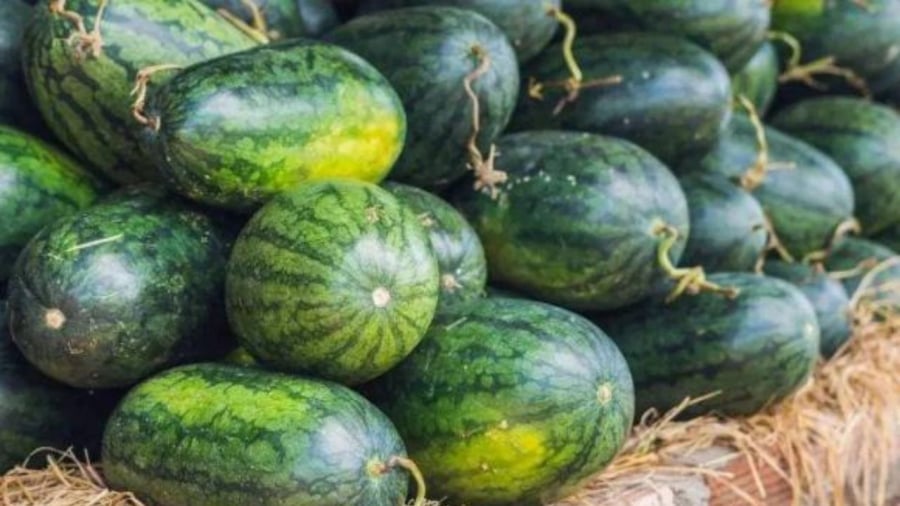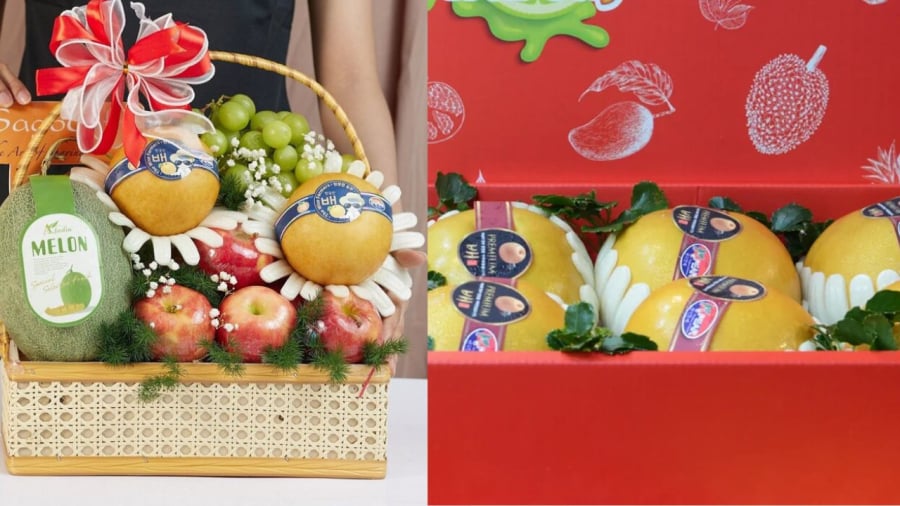Incense Fruit Offerings: A Display of Devotion
Offering incense and fruit is a way for homeowners to show their devotion to deities, ancestors, and lineage. Therefore, the chosen fruits must be sweet, delicious, and clean. According to spiritual beliefs, these fruits, as well as incense flowers, should have beautiful and meaningful names and not imply anything negative. As a result, the following types of fruit are often avoided when it comes to offerings:
Fruit that lies close to the ground (watermelon, pear melon, etc.)
Fruits like melons and pear melons, which do not grow on trellises but crawl directly on the fields, are often avoided for incense offerings. Despite their sweet and refreshing taste, the long duration of their growth process in direct contact with the ground, which is often contaminated with fertilizers and chemicals, is a cause for concern. As such, these melons are believed to absorb negative energy. When sold, they are often casually placed on the pavement or floor, further adding to their inauspicious association.

Watermelons, often placed on the ground, are not considered auspicious for altar offerings
Placing these types of fruit on the altar may introduce negative energy, disrupting the energy field of the worship space. The ancients were meticulous in their worship practices and would only choose fruit grown at a higher elevation, with attractive colors, and cultivated in clean environments to offer to their deities. Thus, they were cautious about choosing fruit for incense offerings. If you can ensure that your melons are grown in a greenhouse and are clean, they can still be used for incense offerings, but make sure to wash and dry them thoroughly beforehand.
This belief also explains why the ancients were very careful when buying incense offerings, never placing them low but always on a table, even before washing them, or in a clean basket if a table was not available.
Pears
Pears are sweet and have many benefits in life. However, they have been avoided since ancient times due to their name, which connotes bad luck and misfortune, and is believed to foretell misfortune. Therefore, offering pear incense is thought to bring bad luck to the homeowner. As such, the ancients avoided giving pears as gifts and avoided using them for incense offerings.
Today, there are many new varieties of pears, and they are considered expensive fruits, often given as gifts. However, when preparing offerings, pears are still not commonly included in the group of five types of fruit.

Pears, associated with inauspicious meanings, are avoided for incense offerings
Chili Peppers
Many people use red chili peppers to decorate their offerings for a touch of color. However, the spicy nature of chili peppers is not suitable for the ‘yin’ aspect of life. Therefore, the ancients avoided offering chili peppers, fearing that they would drive away ancestors and that they symbolized bitterness, sourness, and suffering. Incense offerings are supposed to be sweet and refreshing. While chili peppers and bitter fruits are not commonly used for incense, some people still include them in the fruit tray for aesthetic reasons. However, from a feng shui perspective, this practice is not recommended as it can disrupt the energy field of worship and bring bad luck.
Reference information for contemplation
The Ancient Adage: ‘Why Avoid Three People When Visiting a Grave and Not Stay Past Hour of the Scent?’
“The phrase ‘tảo mộ không quá ba đời’ translates to ‘tomb sweeping is usually done within three generations’. This cultural practice typically involves the second generation, such as children paying respects to their parents, and the third generation, such as grandchildren doing the same for their grandparents.”
The Magic of Salt: Uncover the Nightly Ritual for a Transformative Morning
In the world of Feng Shui, a simple yet powerful remedy to attract wealth and prosperity is to place a bowl of salt in a strategic location. This ancient practice is believed to bring good fortune and abundance to the homeowner, with the salt acting as a symbol of purification and a magnet for positive energy. By strategically positioning the salt bowl, one can create a harmonious and prosperous living environment, inviting success and financial abundance.





































